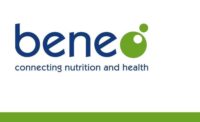Low-Cal Food Market
Low-calorie foods, drinks were a $7.4 billion market in 2013; to post 5.9% CAGR to 2019, says Research and Markets.
 Research and Markets has published the "Low-calorie Food Market - Global Forecast, Share, Size, Growth and Industry Analysis, 2014-2019" report. Its researchers estimate the global low-calorie food market was US$ 7,418.6 million in 2013. Usage of low-calorie food products in the beverages sector is forecasted to increase by 5.9% CAGR from 2014 to 2019.
Research and Markets has published the "Low-calorie Food Market - Global Forecast, Share, Size, Growth and Industry Analysis, 2014-2019" report. Its researchers estimate the global low-calorie food market was US$ 7,418.6 million in 2013. Usage of low-calorie food products in the beverages sector is forecasted to increase by 5.9% CAGR from 2014 to 2019.
Obesity has become one of the world’s most challenging health problems. In 2010, the World Health Organization estimates that there were as many as 42 million overweight children under the age of five. Obese people are more likely to develop diseases such as diabetes and cardiovascular diseases at a young age. Obesity rate is the highest in the U.S., as around 36.5% of the total U.S. population is obese.
The U.K has the highest obese population. (24.8%) in Europe, while Australia (28.3%) leads in the Asia-Pacific region. High obesity rate among children is a major concern for parents. Obesity also is a major concern in adults, as is the rising number of diabetes cases, globally. The WHO noted that around 347 million people worldwide had diabetes in 2013, these factors led to the increase in demand of low- calorie food during the last few years.
The demand for low-calorie food is also increasing due to changing lifestyle, increasing number of health conscious people and growing consumer confidence in low-calorie products due to their natural claims. The emerging markets such as India, China and Brazil, have rising number of diabetes patients, fueling the demand for low-calorie food.
Based on application the low calorie food market is broadly classified under, food, beverages, healthcare, tabletop and others. On the basis product segment, aspartame, sucralose, stevia, saccharin and cyclamate are the broad categories. Aspartame is one of the most widely used artificial sweeteners. In the recent scenario, sucralose is gaining more popularity than aspartame. Growing consumer preferences for all-natural products have created a huge demand for stevia. Due to its growing popularity as a 100% natural sweetener, stevia is giving tough competition to other high-intensity sweeteners such as aspartame, saccharin and sucralose.
Sucralose is expected to be the fastest growing segment, likely to register a strong growth in the future.
Looking for a reprint of this article?
From high-res PDFs to custom plaques, order your copy today!





